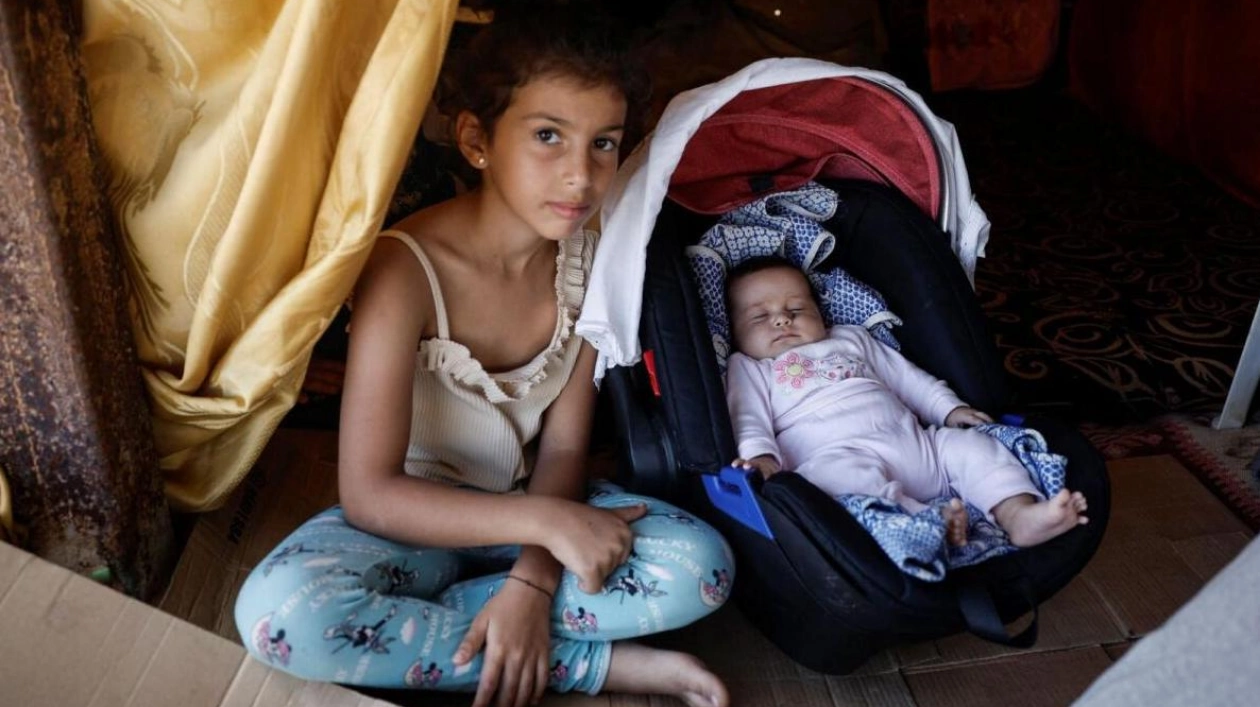A displaced girl stands beside her two-week-old sister at their makeshift shelter on a beach in Beirut, Lebanon, on October 12, 2024. — Reuters
Tahani Yassine, in her third trimester of pregnancy, decided to return to her hometown of Beirut to give birth. Living in Equatorial Guinea with her husband and three young children, she trusted the Lebanese healthcare system more. However, just days after arriving in Beirut, Yassine started to question her choice. Israel escalated its military operations in Lebanon, targeting Hezbollah strongholds in the south, the Bekaa Valley in the east, and the southern suburbs of Beirut, near her home. Though her area was not directly hit, the proximity of the strikes and the roar of Israeli warplanes overhead filled her with dread. Worried about the safety of her unborn child, the 36-year-old relocated to an apartment closer to the hospital where she was scheduled to deliver.
"My doctors advised me that I was too far along in my pregnancy to travel. I had no option but to stay and deliver here," she told Reuters just hours after giving birth at Trad Hospital in central Beirut on October 10. In her hospital bed, with her newborn daughter resting in a crib beside her, Yassine expressed her relief that both she and her baby were healthy—a stark contrast to many expectant mothers in the escalating conflict in Lebanon.
Nicolas Baaklini, an obstetrician and gynecologist in Beirut, has observed a rise in premature births and fetal deaths since the hostilities began last year. "What has increased the most, and what was shocking to me, is the number of fetal deaths in utero babies who died in their mothers' wombs," said Baaklini, 61, who runs a private clinic and also works in several Beirut hospitals. "There are many malformations, and surprisingly, several colleagues have noted the same. When...in one year, you have two fetal deaths in utero, and then suddenly, in two months, you have about 15, it suggests that something is amiss," he added.
Around 11,600 pregnant women remain in Lebanon, with approximately 4,000 expected to deliver in the next three months, according to a flash appeal by the UN Office for the Coordination of Humanitarian Affairs (OCHA) in October. Many of these women are displaced and lack proper shelter, nutrition, and sanitation. Access to safe antenatal, postnatal, and pediatric care is becoming increasingly challenging. Since the war intensified in late September, the Israeli campaign has displaced about 1.2 million people, according to the Lebanese government.
The conflict between Israel and Hezbollah militants erupted a year ago when the Iranian-backed group started launching rockets at northern Israel in support of Hamas at the beginning of the Gaza war. In the neonatal intensive care unit of Trad Hospital, Baaklini gently touched the tiny feet of a baby girl in one of the incubators. The baby and her twin brother were born prematurely to a mother who had to evacuate her home in southern Beirut due to Israeli airstrikes. Baaklini believed that the mother's early contractions were partly due to the stress of the bombings and having to flee. He noted that all ICU beds were occupied, attributing this to the escalating bombings.
"It is not panic that makes you give birth," Baaklini said, as machines monitoring the premature babies beeped in the background. "It is the act of running, falling, and experiencing trauma to the abdomen that triggers contractions, leading to premature delivery."






